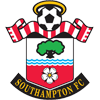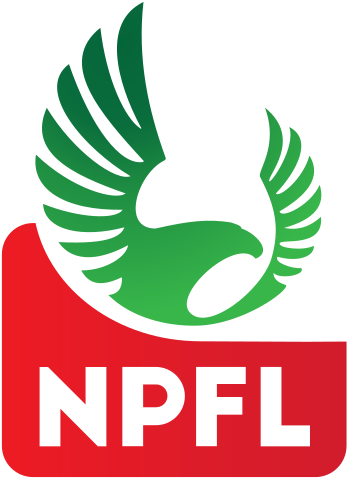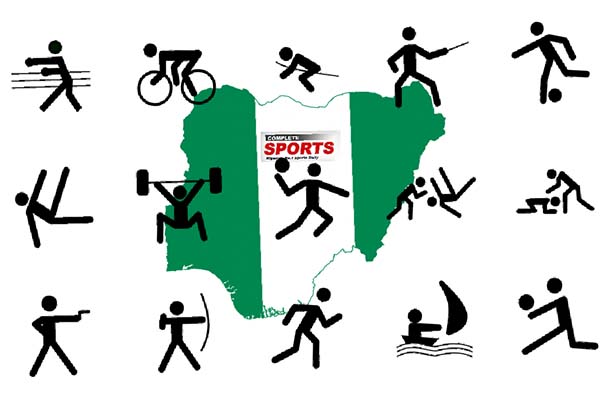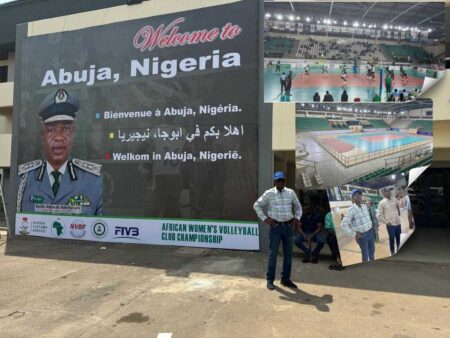On the 60th Independence anniversary of the World’s most populous Black and African country, there is one thing most Nigerians are in agreement with – things are not very well with the state of the country.
Given Nigeria’s huge resources and capacity, the country should be in a much better place and condition than it has been since ‘freed’ from the shackles of British rule in 1960. But the country is not. Instead, in 2020, she is bleeding, groaning and wailing under the weight and siege of insecurity and under-development in virtually all sectors.
In my humble experience, one of the very few human activities that has defied the divides in society, and have actually now developed immunity against the vagaries of human prejudices – race, religion, economy and social status – is Sport. Through most of modern history, sport has sustained and prospered in relative peace and friendship.
Understanding why this is so does not require a degree in the social sciences. Sport is a very powerful tool for human relations. In Nigeria, no other activity drives the unity of Nigerians as does sport.
Why governments still do not appreciate the power of sport to impact society, and do not enlist it as a priority area to solve some hitherto intractable social challenges really perplexes me. The evidence of its efficacy is all around us. It is manifested when Nigeria goes for international sports events, particularly football. It is manifested in the passionate almost fanatical followership by Nigerians of footballers and clubs in European football. It is manifested in the patronage of betting shops and viewing centres in every nook and cranny of the country. It is manifested in the largest migration of African athletes abroad in search of greener pastures.
In Nigeria, the passion for sport, particularly football, has transcended all differences and divides.
Also Read: 15 Golden Sporting Moments Of Nigeria At 60
So, why is it not deployed as a weapon for mass mobilization, for youth engagement and empowerment, for job creation, to douse societal tensions, to forge genuine friendships, to enforce peace, and to unite the people beyond when they watch or play games together? Why can sport not become a candle to light up the political space, to show people how they can come around a common cause and mission, fight as a team, win or lose together, and live in mutual peace thereafter? Why?
Over 200 million Nigerians all over the world will mark the 60 years of the country’s Independence, but few will celebrate it, because there is little to celebrate about in the firmament.
October 1 has become an annual reminder of what could have been, and not what is. Nigeria’s story is that of the richest Black country in the world producing some of the poorest people, through the squandering of its riches and opportunities by failed leaders and a failed system.
So, the best that can be said on this day is that despite all the political, social and economic turbulences that the country has been going through for most of its 60 years of self-rule, she still survives, even if on life-support. But things can change.
Through sport Nigeria can become one of the greatest countries on earth. The formula is simple and inexpensive. The country only needs to THINK outside of the conventional box, glean and utilize the opportunities that exist around her but are wasting away in ignorance and lack of understanding.
Take the case of athletics and how Nigeria can take useful lessons from Jamaica’s experience.
I received a mail from Ron Davis the other day. Ron is an African American, a former international athlete for the USA, former coach in Nigeria, and the man that guided Tanzania’s most successful athlete, Filbert Bayi, in the 1970s, to become the global track champion and icon that he is today. He currently works as an adviser to Filbert at the Filbert Bayi School of Sports in Tanzania.
Ron wrote: “A little more than 30 years ago, former world record holder, Dennis Johnson decided to take what he learned at San Jose State University in the 1960s and set up a competitive US-style college athletic program in his home country. The goal: to produce world class athletes, especially track stars.
“The point is that Nigeria has the father of the sprints in Nigeria – Lee Evans – and nothing other than what you are doing privately in your academy is taking advantage of the opportunity, knowledge and experience that Lee has. Lee loves Nigeria and wants to see the country’s athletes winning medals in the Olympic games”.
A few days later Ron sent me another report on Dennis Johnson.
Dennis Johnson is a Jamaican.
60 years ago, he enrolled into San Jose State University in the USA. He was an athlete, a sprinter. San Jose University had the reputation then of being ‘Speed City’ where the best sprinters in America were produced in a production line.
The University had a White American athletics coach called Bud Winters. Bud had designed a training program at the university that was producing sprinters in droves.
Aside from Dennis Johnson who went on to break two world records in sprinting, others produced by Bud included over 40 world-record holders, and over 30 Olympic medalists, including, in 1968, Lee Evans, John Carlos and Tommie Smith, some of the greatest African American athletes of all time.
Lee credits Bud Winters as the major factor in his phenomenal success. Lee actually rates Bud as the greatest sprints coach in history. Ron Davis elevates Lee Evans to that realm.
Dennis spent two years at San Jose, graduated and returned to Jamaica to introduce the Bud Winter’s formular of athletic programme in his own country.
He worked out of the University of Technology, Unitech, Kingston, as its Athletics Technical Director.
He handed down Winters’ training formular like a baton to other coaches including Stephen Francis, and Glen Mills, the two men that coached world record breakers Ashafa Powell and Usain Bolt, respectively. He simply transferred everything he learnt from Bud Winters to the athletes and coaches in Unitech. Jamaica became saturated with Bud Winter’s style of discovering and training athletes, and became the sprints kingdom of the world.
At the Beijing Olympics, of the 57 athletes that went, 52 were athletes, the majority of them sprinters. That production line continues till this day to produce some of the greatest male and female sprinters in the world.
Dennis Johnson worked very hard to get Jamaican High schools to incorporate sports into their academic curriculum, because sport and academics must go together for the full learning experience to be achieved. With Dennis Johnson’s introduction of Bud Winter’s formula to the Jamaican academic space, the uncontrollable migration of Jamaican athletes into American Universities also trickled down to current near insignificant numbers. He used Unitech’s training facilities as the home base for Jamaican sprinters. The result is there for the rest of the world to see.
Now, how does that affect the price of fish in Wasimi market?
Lee Evans is in Wasimi, Nigeria.
He is acclaimed as one of the all-time best sprints coaches in the world, using the formula of his teacher and mentor, Bud Winters.
The success of his small previous work is all over Nigeria in some of the greatest sprinters in our history. They include Felix Imabiyi, Dele Udoh, Innocent Egbunike, Falilat Ogunkoya, Taiwo Ogunjobi, Gloria Ayanlaja, Kemi Sangodeyi, , Henry Amike, Sunday Uti, Brown Ebewele, Seigha Porbeni, Peter Okodegbe, Samson Oyeledun, Lawrence Adegbeingbe, Bruce Ijirigho, Kola Abdullahi, Kehinde Vaughn, and so on!!!!! Ask every one of them what they think and know.
All I can say whilst wishing Nigerians a happy 60th Independence anniversary, is to look in the pocket of their sokoto (trousers in Yoruba) for what they are seeking in Sokoto.













































































































